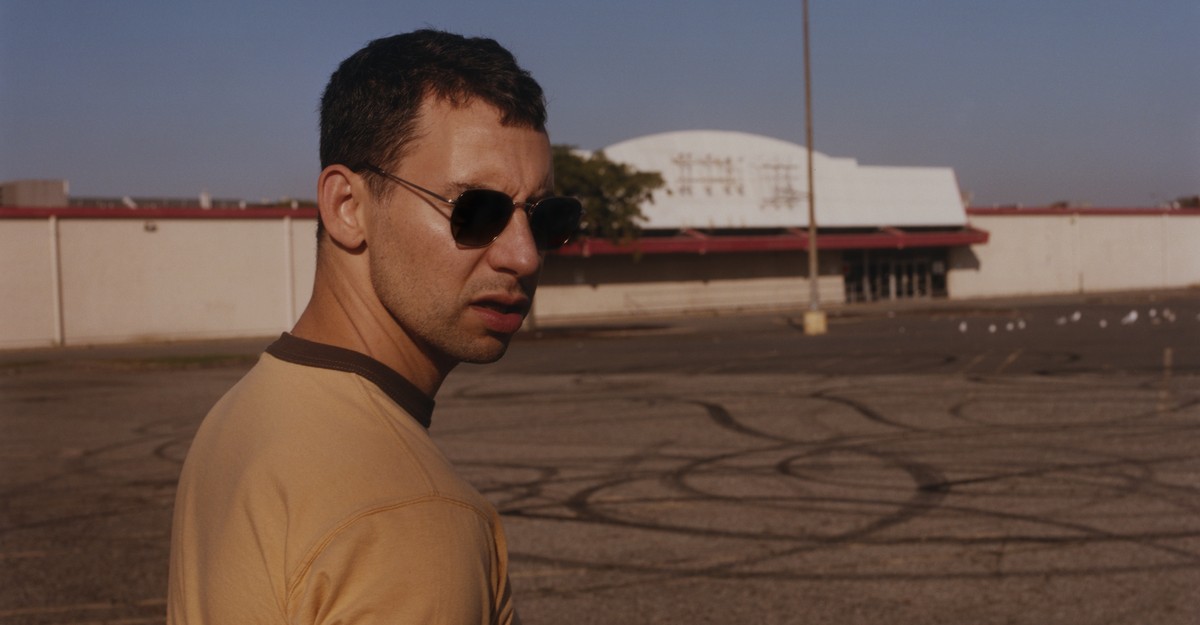
The song that has most influenced pop music of the past decade might be one released in 1984: Bruce Springsteen’s “I’m On Fire.” With a rhythm that was twitchy but not quite danceable, with desperate vocals and cooling puddles of reverb, “I’m on Fire” was ballad and banger, confessional and slick, embodied and ghostly. Springsteen sang of being trapped on the edge of catharsis, and the music seemed to want to suspend time.
A lot of Taylor Swift’s recent songs contain traces of “I’m on Fire,” either in their specific production choices or in their general mood. So do the songs of Lana Del Rey, the 1975, Lorde, and many other artists who’ve worked with the producer and songwriter Jack Antonoff. Last month at the Grammys, Antonoff won his third consecutive Producer of the Year, Non-Classical award. Today his band, Bleachers, put out a self-titled album that might be the ultimate manifestation of what’s made him important: the yearning, in the 2010s and 2020s, to slow, stop, and even reverse the clock.
Many commentators worry that popular art of late has given up on originality, and Antonoff, 39, makes a handy figure upon which to project such anxieties. His music—both his production work for other artists and his efforts in Bleachers, which he formed in 2013—tends toward ’80s pastiche, reviving the sounds he would have heard when he was a kid. He likes to channel not just “I’m On Fire” but all of Springsteen’s catalog, its saxophones and its synths. He also incorporates the guitar jangle of R.E.M., the drum tones of Phil Collins, and the vocal affectations of Danny Elfman. The most recent new Taylor Swift album, Midnights, even caught flack for seeming to recycle Antonoff’s past work.
But the accusation that Antonoff is purely an excavator isn’t quite right. He’s actually not involved with the most cynical pop-nostalgia trend of recent times: interpolating and sampling extremely recognizable old hits. His music incorporates modern studio tricks, hip-hop flourishes, and of-the-moment lyrical references. Rather than just try to re-create the past, Antonoff creates music about the past, capturing—in current ways—the painful distance between who we are and who we used to be.
That pain is, for Antonoff, personal. When he was 18, his 13-year-old sister died of cancer, an event that drew a terrible demarcation between the artist’s youth and adulthood. Most of his music with Bleachers to date has been about this tragedy, he has said. In 2014, the band’s explosively catchy debut single, “I Wanna Get Better,” spelled out his artistic philosophy: “I chase that feeling / Of an 18-year-old who didn’t know what loss was.”
Antonoff’s reason for mourning the past is specific to him, but the way he usually renders it in music—via churning basslines, echoing vocals, and outmoded instruments—can slot into all sorts of backward-looking projects. Swift has said she feels frozen at the adolescent age when she became famous; Midnights, her most Antonoffian album, was explicitly an exercise in revisiting memories. Being unsure what to make of the present and daydreaming about the past also configure the default posture of Del Rey, another artist who has found Antonoff an ideal partner.
Antonoff told the Los Angeles Times that on Bleachers’ fourth album he’s finally moving forward, because his recent marriage to the actor Margaret Qualley has liberated him to write about topics other than his lost youth. And yet the album’s opening song, “I Am Right On Time,” starts with a swell of U2-style guitar chiming and this typically wistful lyric: “We were just kids / It wasn’t over when it ended.” New love, to Antonoff, appears to be less about a sense of discovery than a sense of return, a triggering of familiar comfort: “She’s my alma mater,” goes a later refrain on the album.
What’s really evolving is Antonoff’s sound. Despite (or maybe because of) his collaborations with catchy storytellers such as Swift and Del Rey, his own work seems to be moving further away from prioritizing narrative or even melody. Bleachers now mostly seems like an opportunity for Antonoff to push himself as a sound sculptor rather than as a songwriter. The bass line of the hypnotic “Alma Mater” acts like a tractor beam, accumulating a halo of sound effects and murmuring vocals around it. On “Self Respect,” Antonoff cleverly arranges choir vocals and keyboards to vibrate for a kind of confusing, prismatic effect—befitting confusing, prismatic lyrics that reference Kobe Bryant and Kendall Jenner.
Some of these sonic experiments are beautiful; some of them are just irritating. But more than anything they merit the au courant description “vibey.” The songs drift, decay, glitch, and loop back on themselves. Antonoff frequently manipulates his voice electronically, making his lyrical persona flicker between hyperactive and depressive. Despite his great debt to 20th-century rock, Bleachers is equally in conversation with 21st-century touchstones such as Bon Iver and Frank Ocean—artists whose work is absolutely about trying to find new ways to explore memory and history.
One can debate for days which exact social or technological trend has made such explorations so intriguing to artists and listeners lately. Is it the apocalyptic state of the world? Is it the internet’s endless archives? Is it a failure of corporate investment in the new? Or is it the fact that hazy, nostalgic music works well as a streaming bait, creating a dreamy backdrop for all manner of uses? The truth is that all of these factors have combined to create a distinctly contemporary reality of time-related confusion and slippage. To sing about today can mean singing, as Antonoff does on the album’s opening song, “My mind is mirrors / don’t know what is and what’s reflection / The future’s past and I’m right on time.”
Still, one wonders what it would sound like for Antonoff to make music about anticipation of the future, about seizing the day that’s unfolding. Bleachers feints at that idea with the lead single “Modern Girl,” whose tumbling, bar-band arrangement comes complete with outrageous saxophone peels. Antonoff sings about modern girls and boys “shakin’ their ass tonight,” but the throwback sound of the song makes those lyrics come off as meta, sarcastic. In the video, Anotoff and his band perform with frantic excitement that recalls the cloying and false liveliness of marionettes. The song’s effect is, to quote “I’m On Fire,” edgy and dull. Some other artist will have to wake us up to what’s next.









